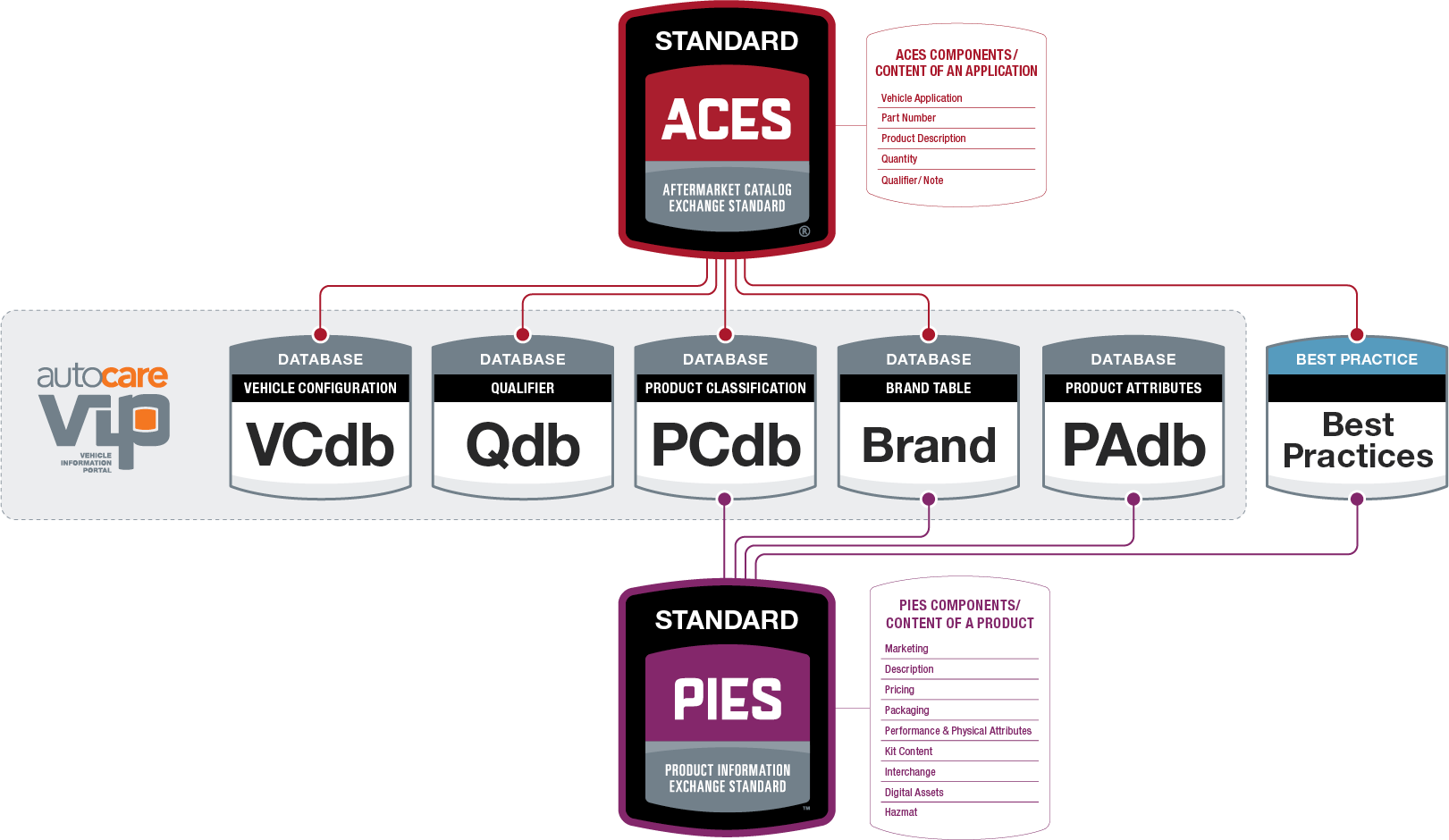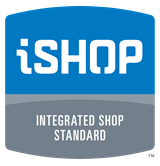Data Standards
The single most effective way to communicate with your trading partners.
Get the right part, to the right place, at the right time using data standards to speak the same technical language as your customers.
Cast your net wider and further with data standards. Are you supporting all you should be?
Talk to an Expert
Book a meeting with one of our experts for a free consultation on Data Standards, TrendLens, Demand Index, Data Standards API, or Catalog Assessment.
Book NowContribute Your Expertise
Help manage ACES and PIES content by submitting requests for updates to the most important data records our industry has to offer
LEARN MORENew E-Learning Courses
Advance your career by starting the Introduction to ACES and PIES, Intermediate ACES and PIES, and Aftermarket Essentials on our new e-learning platform today!
Learn More
Subscribers around the globe
use our data standards to communicate, effectively and consistently, information between their trading partners.
what is aces® and piesTM data?
Aftermarket Catalog Exchange Standard (ACES®) and Product Information Exchange Standard (PIESTM) utilize a standardized method of communication that is machine-readable (XML) by all trading partners and exclusive to the automotive industry. It allows for companies to be more efficient in communicating information for their products that is critical to do business.
The Aftermarket Catalog Exchange Standard (ACES®) is the aftermarket industry data standard for the management and communication of product fitment data.
The Product Information Exchange Standard (PIESTM) is the aftermarket industry data standard for the management and communication of product information.

Doing business in the Americas requires the use of the ACES® and PIESTM data standards
By utilizing the Aftermarket Catalog Exchange Standard (ACES®)* and Product Information Exchange Standard (PIESTM)*, as well as best practices, you are able to get the right part, to the right place, at the right time, using the leader in data standards in the automotive aftermarket industry. Key benefits:
- Removes duplicated communication and distribution efforts
- Saves time and money
- Lowers supply chain costs
- Increases product introduction and speed to market
- Contributes to increased sales, operational efficiencies, and reduced returns
*While the ACES® and PIESTM data standards are free, they both utilize multiple relational databases that contain standardized, codified data (aka reference data), some of which require an annual paid subscription.
Take a look at our other standards
.tmb-thumb160.png?Culture=en&sfvrsn=6f756b94_1)
Internet Parts Ordering (IPOTM) is the aftermarket industry data standard for the messages and information flow required to locate product, inquire about product availability and order products online.
Learn More

Integrated Shop Standard (iShopTM) is a set of computer interface standards that allow vehicle service equipment, management software, and inspection servers to communicate seamlessly in the service shop environment.
Learn More
The Super Spec data standard is an industry-specific definition of the EDI requirements needed to connect distributors and retailers with their manufacturers and suppliers in the aftermarket.
Best Practices
Best practices have been developed in several areas to support the data standards. Our guidelines inform, assist and provide recommendations.
How the Data Standards are Managed
The utilization of data standards and best practices allows the auto care industry to pool resources and leverage economies of scale. By pooling resources through the Auto Care Association, the data is more accessible and affordable to each industry player. This pooled research effort provides an economy of scale for all subscribers to the Auto Care Association’s data standards and keeps the data used by the industry under management of a non-profit, non-partisan entity.
The Auto Care Association manages the data standards and best practices under the guidance of the Technology Standards Committee (TSC). The TSC committee is comprised of volunteer leaders employed by Auto Care Association member companies. They are tasked with providing input and guidance to the Auto Care Association, and act as an industry sounding board. The TSC sets the direction and approves changes to the data standards managed by the Auto Care Association.
Testimonials

I’m an engineer. I love to solve problems. Through the Technology Standards Committee, we’ve been able to work on common problems across our trading partners and the customers that we serve to improve our delivery of goods and services.
Doug Wiggin,
Director, Software Architecture Aftermarket Auto Parts Alliance
Frequently Asked Questions
The auto industry Data Standards, developed by the Auto Care Association specifically for the auto care industry, can increase the speed, efficiency and accuracy of critical data transfers, lowering the operating costs for all business partners.
Here are a few data standards Auto Care provides:
- Aftermarket Catalog Exchange Standard (ACES®)
- Product Information Exchange Standard (PIES™)
- Internet Parts Ordering (IPO™)
- Integrated Shop Standard (iShop™)
- SuperSpec
Learn more about these standards here.
The Auto Care Association's Data Standard IShop™ and as well as the supporting relational databases (VCdb, Qdb, PCdb and PAdb) that support the ACES®, PIES™ and IPO™ data standards, require a paid subscription to use. For subscriptions information, please visit our subscriptions page for pricing and more details.
If you choose to subscribe, please allow several days for your order to process. When your order is processed and payment is received, you will receive a receipt and access to the subscribed data standard and/or supporting database within www.autocarevip.com. You can log into www.autocarevip.com prior to activating a subscription using your autocare.org profile login credentials.
Aftermarket Catalog Exchange Standard (ACES®) and Product Information Exchange Standard (PIES™) utilize a standardized method of communication that is machine-readable (XML) by all trading partners and exclusive to the automotive industry. It allows companies to be more efficient in communicating information for their products that is critical to do business.
The Aftermarket Catalog Exchange Standard (ACES®) is the aftermarket industry data standard for the management and communication of product fitment data.
The Product Information Exchange Standard (PIES™) is the aftermarket industry data standard for the management and communication of product information.
Using both ACES® and PIES™ allows for companies to be more efficient in communicating product fitment and product information for their products by utilizing a standardized communication method that is machine-readable (XML) by all trading partners. This removes duplicated communication and distribution effort, saves time and money, lowers supply chain costs, increase product introduction speed and speed to market, as well as contributes to increased sales, operational efficiencies, and reduced returns. Check out our Data Standards page for more information.
To create and/or receive ACES® xml files, one must subscribe to one of the VCdb packages. Subscribing to the VCdb provides access to the Qdb and PCdb. All three databases are required to create and/or receive ACES® xml files.
To create and/or receive PIES™ xml files, one must subscribe to the PAdb. Subscribing to the PAdb provides access to the PCdb. Both of these database are required to create and/or receive PIES™ xml files.
See our subscriptions page for more pricing and more details!

.tmb-thumb160.png?Culture=en&sfvrsn=9e63b3fc_1)
.tmb-thumb160.png?Culture=en&sfvrsn=913d409b_1)


